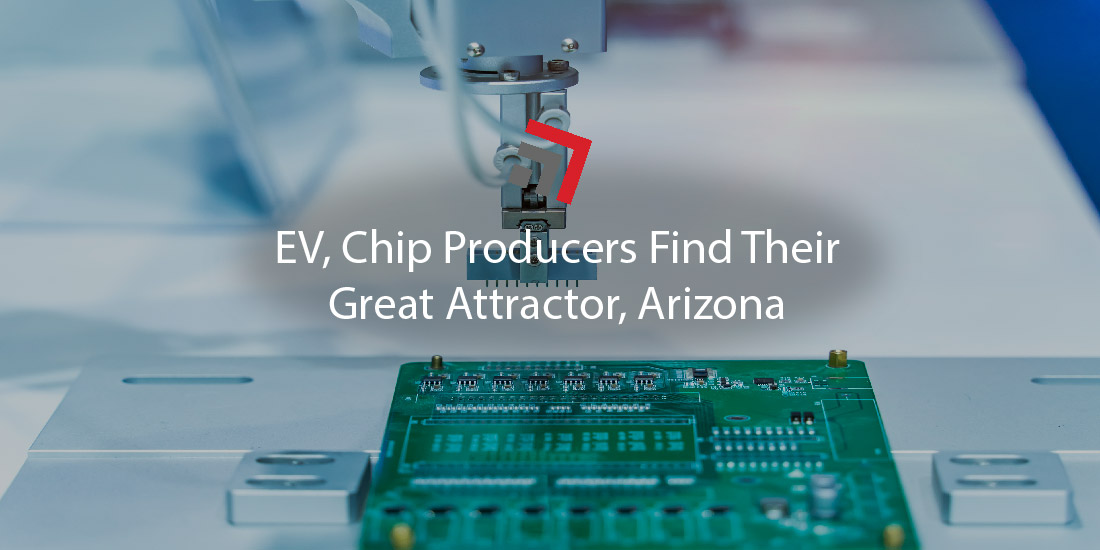When a robot rig completed the world’s first self-driven route between Tucson and Phoenix, the logistics world turned its eyes onto the state of Arizona and was captivated.
On that day, the Grand Canyon state played host to a moment in history that doesn’t just speak to trucking’s future, but also to how innovation can be developed and realized right in America’s backyard.
Forget about the state’s mediocre NFL team or sunburnt snowbird populus, Arizona has become one of the country’s premier landing spots for producers of electric vehicles, batteries, and semiconductors.
Arizona, the frontrunner for bringing production back home
President Biden’s February’s State of Union address made it pretty clear on the country’s desire to shift manufacturing and production back to the states: “Where is it written that America can’t lead the world in manufacturing again?”
Throughout the last couple of years, U.S. supply chains were devastated as typical imports of products containing critical components, like semiconductors and batteries, were choked out thanks to pandemic and wartime impacts.
These hurdles led to regulatory actions, like the CHIPS and Science Act and the Inflation Reduction Act, that now look to foster a more resilient and self-reliant supply chain.
Endowed in these acts are tax credits and incentives to reward EV and battery companies to set up shop in the U.S as opposed to overseas.
As a result, the perks of being a production homer have attracted several big players to follow suit.
But, why has Arizona become a popular destination?
Well unlike retired snowbirds flocking from the Midwest, companies aren’t just moving to Arizona for the sunshine and warm weather.
In addition to government incentives, Arizona boasts plentiful land availability, a deep pool of educated labor, and an already favorable regulatory environment.
The head of the Arizona Technology Council, a statewide trade association for science and tech companies, told FreightWaves that five EV manufacturers, four battery manufacturers, and two lithium ion battery firms have expanded operations in the state.
Recently, LG Energy Solution announced a $5.5 billion battery manufacturing facility near Phoenix.
Supply chains are getting closer
Arizona also shares a border with Mexico, the main beneficiary of America’s nearshoring movement.
Many industries, who primarily outsourced production over in Asia, are returning in varying capacities back to North America, whether it be the U.S. or Mexico.
Within this context, “nearshoring” refers to the shift of manufacturing and production in Mexico, while “reshoring” refers to having these arrangements right in the U.S.
From productions hubs in Mexico to border states, like Arizona, it’s only several hours away by drive. The advantages are glaring when compared to overseas locations where transits are measured by weeks, not by hours.
And, after a volatile market thanks to the pandemic and war in Eastern Europe, companies are now rationalizing a closer operation means less risk and hidden costs.
The factors above all contribute to the affinity EV and chip manufacturing industries have for the state of Arizona.
They are now in close proximity to lucrative supply chains that demand commodities of semiconductors, electric vehicle components, and batteries.
Final Thoughts
However, Arizona isn’t just the only state drawing attention.
Texas has been the Grand Canyon state’s main competitor. Besides also sharing a border with Mexico, the Lone Star state has no corporate income tax much to the pleasure of prospective companies.
Other states are also attracting production facilities. Kansas, Kentucky, Michigan, New York, Pennsylvania, and Tennessee all have a project in the works over the past year.
Please contact us if you have any questions regarding this topic or any others in domestic logistics. In addition, stay up to date with weekly headlines from both trucking and rail via our Road Map newsletter.
More blogs similar to this:



Recent Comments